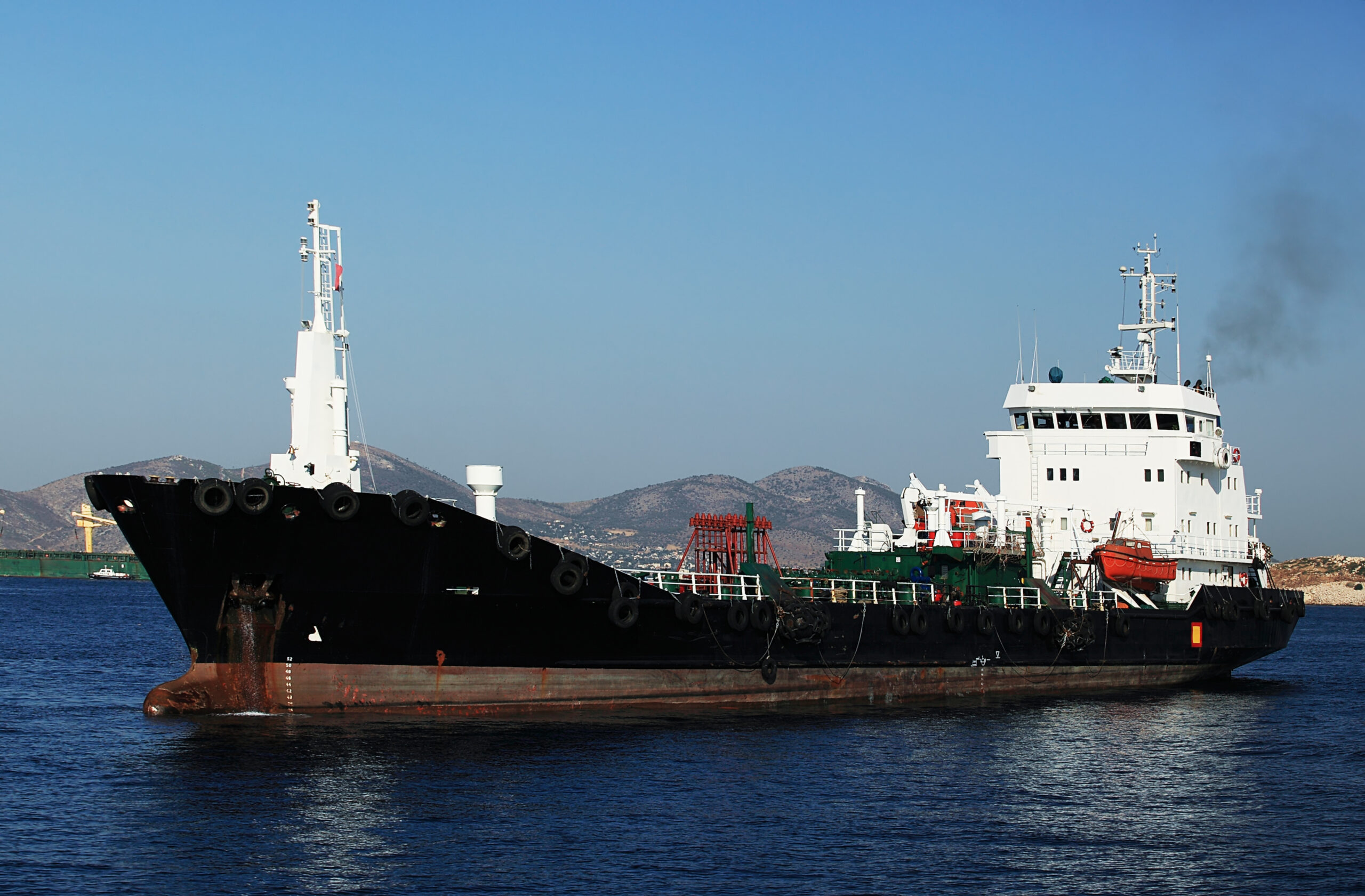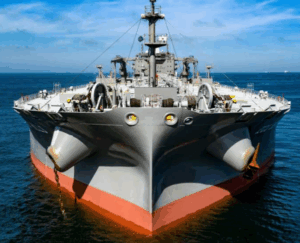Greece’s short sea shipping is facing major challenges due to the ageing fleet, the stricter environmental requirements of the ‘Fit for 55’ package, and the inadequate infrastructure.
The average age of the fleet remains particularly high, over 30 years, which negatively affects the competitiveness of the sector and creates additional challenges for the path towards green transformation.
The Hellenic Short Sea Shipowners Association and its president Charalambos Simantonis, in collaboration with the Foundation for Economic and Industrial Research (IOBE), presented the study “Short Sea Shipping: Trends, Challenges and Impact on the Greek Economy,” at an event held on September 18 at the Eugenides Foundation.
According to the IOBE study, in the period 2004-2015, the number of cargo ships under 5,000 GRT decreased by 31.3% and those between 5,000 and 20,000 GRT by 64.1%. In contrast, the decline in small tankers continues (-42.0% overall in the period 2004-2025 for tankers up to 5,000 GRT and -27.8% for tankers 5,000-20,000 GRT).
At the same time, it is estimated that in 2024, the fleet of tankers and cargo ships serving domestic short sea shipping amounted to 102 ships (37 cargo ships and 65 tankers), with a total capacity of 292,000 GRT.
Over 70% of the ships are over 30 years old, compared to 41.4% for all Greek cargo and tanker ships. Furthermore, 40.9% of the fleet is over 45 years old. As it is explained, there is an urgent need to replace and modernize the fleet.
Meanwhile, 40% of tankers are between 15-24 years old, while almost all general cargo ships (except one) are over 30 years old.
The high average age of the fleet, the need to comply with the new environmental requirements of the “Fit for 55” package and the insufficient infrastructure to support the reduction of the carbon footprint of shortsea shipping are creating pressures on its competitiveness.
The study estimates that, without additional relevant interventions, the annual cost of compliance with the new measures will amount to €225m (euros) in 2030. The increased cost translates into an additional burden on freight rates of up to 38.6% and a loss of revenue of around €140m.
To address the challenges, the IOBE study proposes a set of policies centered on the renewal and modernization of the shortsea shipping fleet, with an emphasis on the adoption of low or zero emission technologies.
At the same time, investments are required in critical port infrastructure, such as ship electrification facilities (cold ironing) and alternative fuel supply infrastructure.
It also proposes targeted policies for fleet renewal, the development of green and multimodal infrastructures, and the creation of dedicated financial instruments, so that short sea shipping (SSS) remains competitive and continues to support the Greek economy and the country’s island and coastal regions.
Specifically, to finance the required investments in ships and infrastructure, it is necessary to create relevant financial mechanisms, as well as long-term financial solutions, which will be exclusively aimed at securing the required investments in ships and infrastructure.
The cost of compliance with the new environmental requirements can also be reduced with additional initiatives, including measures to minimize the price difference between new technologies and conventional fuels, such as the possibility of “carbon contracts for differences”, through which a minimum price for new fuels is achieved for producers, thus reducing the risk they face in developing innovative technologies and promoting the development of the relevant production capacity.
Other proposals include the extension of the favourable tax treatment of marine fuels (zero ETD tax) and the provision of a discount on port dues. The FuelEU pooling mechanism can also contribute to reducing compliance costs, providing shipowners with some flexibility in achieving the targets.



